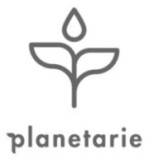
© CEOCFO Magazine -
CEOCFO Magazine, PO Box 340
Palm Harbor, FL 34682-
Phone: 727-
Email: info@ceocfocontact.com


Search





Business Services | Solutions
Medical | Biotech
Cannabis | Hemp
Banking | FinTech | Capital
Government Services
Public Companies
Industrial | Resources
Clean Tech
Global | Canadian
Lynn Fosse, Senior Editor
Steve Alexander, Associate Editor
Bud Wayne, Marketing
& Production Manager
Christy Rivers -





 Print -
Print -
Water-
Better for People, Planet & Plant!
 Stacy Cason
Stacy Cason
CEO
Planetarie
Contact:
(970) 539-
Interview conducted by:
Lynn Fosse, Senior Editor
CEOCFO Magazine
June 15, 2020
CEOCFO: Ms. Cason, what is the idea behind Planetarie?
Ms. Cason: It is a water extracted hemp company. We were seeking a healthier alternative to extract the beneficial cannabinoids from the hemp plant.
CEOCFO: What have you figured out so far?
Ms. Cason: After a good year of R&D, we have now scaled a process that does effectively extract the cannabinoids and does not decarboxylate into CBD, so it keeps them in the acidic precursor form. It is the raw and natural state in which they have been grown in the plant.
CEOCFO: Why does that make a difference?
Ms. Cason: The current market leaders of extraction will use one of two methods: ethanol which is soaking the plants in alcohol, or CO2, which uses extremely high pressure. CO2 extraction produces a crude product that usually requires refinement in the form of heat or additional solvents such as ethanol. With the ethanol extraction, it uses alcohol which then gets concentrated and typically stays with the CBD oil produced, which can be harmful over time. The big takeaway is that both of the main extraction methods do not end up producing the cannabinoids that we are able to extract in safer and more environmentally friendly method.
CEOCFO: What is CBDa?
Ms. Cason: CBDa is cannabidiolic acid, which is the parent of CBD that is grown in the plant. A majority of the cannabis strains mainly produce two cannabinoids which are cannabidiolic acid and then tetrahydrocannabinolic acid (THCa). The way the cannabinoids are grown in the plants is in their acidic form. The CBDa is what the plant actually produces. Through heat, it gets converted to CBD in a process called decarboxylation. When you see CBD oil on the market or in products, heat has been applied to molecularly change it from the way it was grown in the plant into that CBD state.
CEOCFO: Is the market aware of some of the differences and why they are important, both consumers and people in the industry?
Ms. Cason: I would say no, not yet.
CEOCFO: How do you raise awareness?
Ms. Cason: That is a big question and our biggest challenge. We are working now to get into other human research studies. There have been many studies on cannabinoids as a whole, and recently there has been more focused research into CBDa specifically. We have a website with a research tab, as well as social media. The challenge for this industry is that we cannot do a lot of traditional advertising, so you are limited in your outreach marketing. Educating our industry and its consumers is definitely our biggest hurdle.
CEOCFO: Your recently launched water extracted CBDa consumer products. What is available and why do we want it?
Ms. Cason: We have an infusion, which is comparable to a traditional tincture. I like words and I think they matter: Tincture means made with alcohol, and since ours is not made with alcohol, we changed the name to infusion. That is in an organic MCT oil and flavored with a natural mint flavor. We also have soft gels, a water soluble drink additive, and two topical salves or balms. The salves are made with jojoba oil and beeswax which is good for your skin in addition to the cannabinoid benefits.
CBDa when compared to CBD has been shown in studies to be more effective at lower dosages for some effects, as well as being more easily absorbed than CBD. CBDa being of different structure also has the opportunity to bind different receptors and thus act on different pathways, not all of which have been discovered. Greater bioavailability matters.
Importantly, CBDa has been shown to inhibit the COX-
CEOCFO: Are you marketing or selling direct to the consumer? Are you looking to get into various retail locations? What is your business plan?
Ms. Cason: I would love to get into retail locations. We started as B2B of the raw materials that we were processing. Because we were processing differently, the end product looks different, it was a sales and marketing challenge, so we did our in-
We launched our retail line the first of May, so we have the B2C direct to consumer through our website and through a few stores here in Colorado. I would love to get into a national chain, and we scaled up production so we are able to meet those demands. We also still sell the raw materials to other business clients who would like to add the CBDa to their existing product line.
CEOCFO: How do you get the attention of a retail chain?
Ms. Cason: Great question! Some stores, like Whole Foods for example, is one I would love to get in because their consumers match up with ours as someone who is looking to enhance or optimize their wellness. Whole Foods uses an online platform for buyers, and we have set that up. We have also contacted a few stores directly, but have yet to gain the attention of a national chain. I have yet to find a distributor, so I am still seeking the right answer for that question.
CEOCFO: Why did you decide to enter an industry where there are a lot of extra challenges?
Ms. Cason: I love a good challenge, you can look at my bio / history and see that. It motivates me to try something different, to learn, to utilize gifts and talents. I do not back down from something because it is hard, it makes it that much more interesting to try. Also I am hopeful that I can make an impact and pave the way, so that down the road, we do not see those as challenges anymore. A huge passion and interest of mine is in removing the stigma associated with cannabinoid therapy and this industry.
CEOCFO: As there are lots of variation on how effective the CBDa is, are people likely to be more excited to try it or less comfortable to try? How do you mitigate that when you are talking or describing the product?
Ms. Cason: Most of the time once I get to explain the product or consumers read about it they are very excited to try it. Consumers tend to like the idea that our product is actually closer to the plant itself and we also are very transparent. We publish all our certificates of analysis that are performed by a certified third party lab which helps our consumers understand exactly what they are getting, and hopefully makes them more comfortable to try it.
Because other extractions use heat, CBD became the first thing that was available on the market and became what people knew. When you look into the literature you find that CBDa has a lot to offer and we are excited to share this product with consumers. Once people have tried it, the feedback has been incredible.
CEOCFO: Why pay attention to Planetarie with so many companies in your industry?
Ms. Cason: We have taken the extra steps to optimize the goodness of this plant: healthier for people, for the plant and for the planet. This is a more natural process to get a beneficial product into your body to enhance your wellness. We are doing it differently.
Planetarie, CBDa Benefits, cannabinoid water extraction, CBVDa vs CBD, Stacy Cason, Water-
“We have taken the extra steps to optimize the goodness of this plant: healthier for people, for the plant and for the planet. This is a more natural process to get a beneficial product into your body to enhance your wellness. We are doing it differently.” Stacy Cason
